Filter by
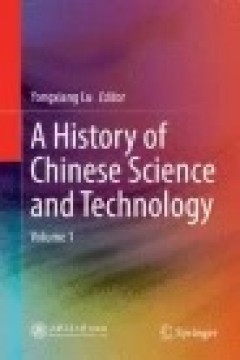
A History of Chinese Science and Technology: Volume 1
A History of Chinese Science and Technology (Volumes 1, 2 & 3) presents 44 individual lectures, beginning with Ancient Chinese Science and Technology in the Process of Human Civilizations and an Overview of Chinese Science and Technology, and continuing with in-depth discussions of several issues in the History of Science and the Needham Puzzle, interspersed with topics on Astronomy, Arithmetic…
- Edition
- Ed. 1
- ISBN/ISSN
- 978-3-662-44257-9
- Collation
- -
- Series Title
- -
- Call Number
- 501 HIS h

A History of Chinese Science and Technology: Volume 2
A History of Chinese Science and Technology (Volumes 1, 2 & 3) presents 44 individual lectures, beginning with Ancient Chinese Science and Technology in the Process of Human Civilizations and an Overview of Chinese Science and Technology, and continuing with in-depth discussions of several issues in the History of Science and the Needham Puzzle, interspersed with topics on Astronomy, Arithmetic…
- Edition
- Ed. 1
- ISBN/ISSN
- 978-3-662-44166-4
- Collation
- -
- Series Title
- -
- Call Number
- 501 HIS h

Environment and Society Socionatural Relations in the Anthropocene
This short book sets out to explore the concept of nature in the context of a changing reality, in which the extent of our transformation of the environment has become evident: What is nature and to what extent has humanity transformed it? How do nature and society relate to one another? What does the idea of a sustainable society entail and how can nature be understood as a political subject? …
- Edition
- -
- ISBN/ISSN
- 978-3-319-15952-2
- Collation
- X, 131
- Series Title
- -
- Call Number
- -
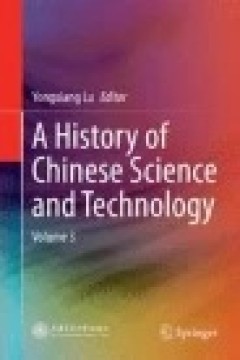
A History of Chinese Science and Technology: Volume 3
A History of Chinese Science and Technology (Voulumes 1, 2 & 3) presents 44 individual lectures, beginning with Ancient Chinese Science and Technology in the Process of Human Civilizations and An Overview of Ancient Chinese Science and Technology, and continuing with in-depth discussions of several issues in the history of science and the Needham Puzzle, interspersed with topics on Astronomy, A…
- Edition
- Ed. 1
- ISBN/ISSN
- 978-3-662-44163-3
- Collation
- -
- Series Title
- -
- Call Number
- 501 HIS h

A History of Biophysics in Contemporary China
This book gives a concise history of biophysics in contemporary China, from about 1949 to 1976. It outlines how a science specialty evolved from an ambiguous and amorphous field into a fully-fledged academic discipline in the socio-institutional contexts of contemporary China. The book relates how, while initially consisting of cell biologists, the Chinese biophysics community redirected their …
- Edition
- Ed. 1
- ISBN/ISSN
- 978-3-319-18093-9
- Collation
- -
- Series Title
- SpringerBriefs in History of Science and Technology
- Call Number
- 501 LUK h
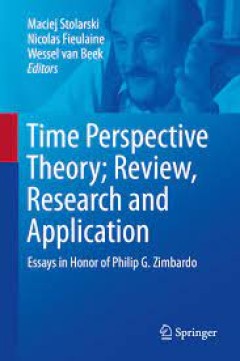
Time Perspective Theory; Review, Research and Application
This book is about time and its powerful influence on our personal and collective daily life. It presents the most comprehensive and up-to-date overview of contemporary knowledge on temporal psychology inspired by Zimbardo's work on Time Perspective (TP). With contributions from renowned and promising researchers from all over the globe, and at the interface of social, personality, cognitive an…
- Edition
- -
- ISBN/ISSN
- 978-3-319-07368-2
- Collation
- 26 b/w illustrations, 10 illustrations in colour
- Series Title
- -
- Call Number
- -

Engineering Identities, Epistemologies and Values Engineering Education and …
This second companion volume on engineering studies considers engineering practice including contextual analyses of engineering identity, epistemologies and values. Key overlapping questions examine such issues as an engineering identity, engineering self-understandings enacted in the professional world, distinctive characters of engineering knowledge and how engineering science and engineering…
- Edition
- -
- ISBN/ISSN
- 978-3-319-16172-3
- Collation
- 18 b/w illustrations
- Series Title
- -
- Call Number
- -
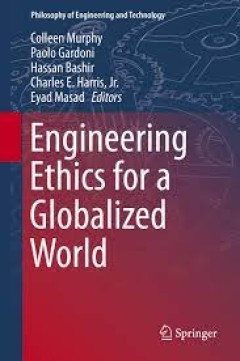
Engineering Ethics for a Globalized World
This volume identifies, discusses and addresses the wide array of ethical issues that have emerged for engineers due to the rise of a global economy. To date, there has been no systematic treatment of the particular challenges globalization poses for engineering ethics standards and education. This volume concentrates on precisely this challenge. Scholars and practitioners from diverse national…
- Edition
- -
- ISBN/ISSN
- 978-3-319-18260-5
- Collation
- 20 b/w illustrations
- Series Title
- -
- Call Number
- -
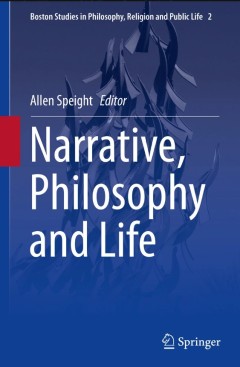
Narrative, Philosophy and Life
This notable collection provides an interdisciplinary platform for prominent thinkers who have all made significant recent contributions to exploring the nexus of philosophy and narrative. It includes the latest assessments of several key positions in the current philosophical debate. These perspectives underpin a range of thematic strands exploring the influence of narrative on notions of self…
- Edition
- 1
- ISBN/ISSN
- 978-94-017-9348-3
- Collation
- IX, 210
- Series Title
- Boston Studies in Philosophy, Religion and Public Life
- Call Number
- -
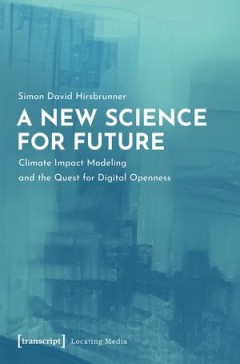
A New Science for Future: Climate Impact Modeling and the Quest for Digital O…
Building on concepts from Science & Technology Studies, Simon David Hirsbrunner investigates practices and infrastructures of computer modeling and science communication in climate impact research. The book characterizes how scientists calculate future climate risks in computer models and scenarios, but also how they circulate their insights and make them accessible and comprehensible to others…
- Edition
- -
- ISBN/ISSN
- 9783839452653
- Collation
- -
- Series Title
- -
- Call Number
- 302.23 HIR n
 Computer Science, Information & General Works
Computer Science, Information & General Works  Philosophy & Psychology
Philosophy & Psychology  Religion
Religion  Social Sciences
Social Sciences  Language
Language  Pure Science
Pure Science  Applied Sciences
Applied Sciences  Art & Recreation
Art & Recreation  Literature
Literature  History & Geography
History & Geography